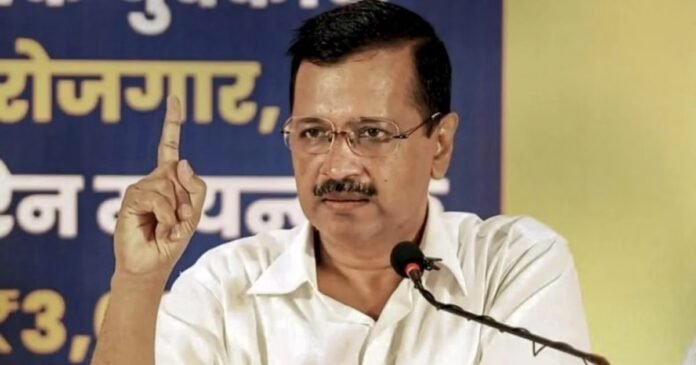Delhi Chief Minister Arvind Kejriwal, known for his outspokenness and unyielding stance against political adversaries, has stirred up a storm with his recent revelation that the Bharatiya Janata Party (BJP) approached him to join their ranks. In a bold assertion amid the ongoing ‘poaching’ row, Kejriwal declared, “BJP asked me to join the party, I said never.” His assertion comes at a crucial juncture in Indian politics, reigniting debates on political opportunism and the ethics of party-switching.
Kejriwal’s revelation, made during a public address, has sent ripples across the political landscape, drawing sharp reactions from both his supporters and detractors. For the Aam Aadmi Party (AAP) leader, known for his anti-corruption crusade and commitment to clean politics, the BJP’s alleged overtures represent a stark departure from his ideological stance and principles.
The timing of Kejriwal’s disclosure is particularly significant, as it coincides with widespread speculation regarding the BJP’s alleged attempts to engineer defections from opposition parties, including the AAP, in various states. With assembly elections looming in several key states, including Uttar Pradesh, Uttarakhand, Goa, and Punjab, the BJP’s purported efforts to bolster its ranks have come under intense scrutiny, triggering accusations of political horse-trading and subversion of democratic norms.
Kejriwal’s assertion not only sheds light on the inner workings of India’s political landscape but also underscores the challenges faced by regional parties in the face of relentless pressure from the ruling dispensation. The AAP, which emerged as a formidable force on the back of its anti-establishment rhetoric and grassroots mobilization, finds itself squarely in the crosshairs of the BJP’s alleged ‘poaching’ strategy, aimed at weakening opposition unity and consolidating its own dominance.
The Delhi Chief Minister’s refusal to entertain the BJP’s offer reflects his unwavering commitment to his party’s founding principles and his determination to resist external pressures. Kejriwal’s steadfast rejection of the BJP’s advances serves as a reaffirmation of his political integrity and underscores his resolve to remain true to the mandate entrusted to him by the people of Delhi.
Moreover, Kejriwal’s disclosure raises broader questions about the ethical dimensions of party politics and the moral responsibility of political leaders to uphold democratic values. In an era marked by increasing polarization and cynicism towards mainstream politics, Kejriwal’s refusal to succumb to the allure of power stands out as a rare act of principled defiance, challenging conventional notions of political expediency and opportunism.
The fallout from Kejriwal’s revelation is likely to reverberate beyond the confines of Delhi’s political landscape, resonating with voters across the country who are disillusioned with traditional political elites and yearn for genuine change. By publicly rebuffing the BJP’s advances, Kejriwal has positioned himself as a bulwark against the erosion of democratic norms and a champion of integrity in public life, garnering admiration from supporters and critics alike.
However, Kejriwal’s revelation also underscores the complex dynamics at play within India’s political ecosystem, where alliances are forged and broken in pursuit of power and influence. As parties jostle for supremacy and maneuver to gain electoral advantage, the lines between ethical conduct and political expediency often blur, leaving voters disillusioned and disenchanted with the political process.
In the final analysis, Arvind Kejriwal’s bold assertion serves as a timely reminder of the enduring power of integrity and conviction in the face of political machinations. By resisting the BJP’s overtures and reaffirming his commitment to his party’s ideals, Kejriwal has not only set a precedent for principled leadership but also reignited debates on the moral imperatives of public service. As India grapples with the challenges of a rapidly evolving political landscape, Kejriwal’s steadfast refusal to compromise on his principles offers a glimmer of hope for a more ethical and accountable form of governance in the years to come.

